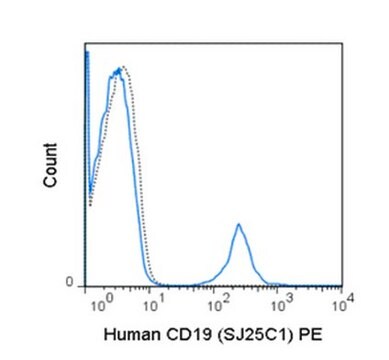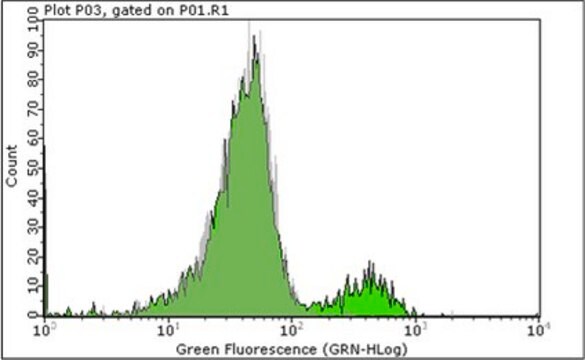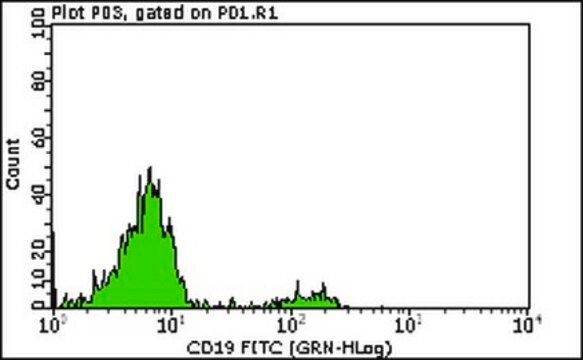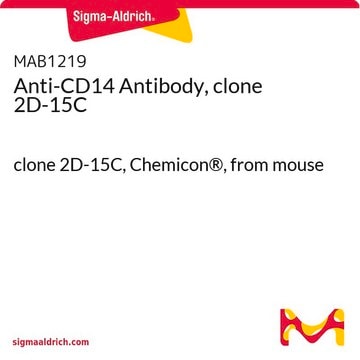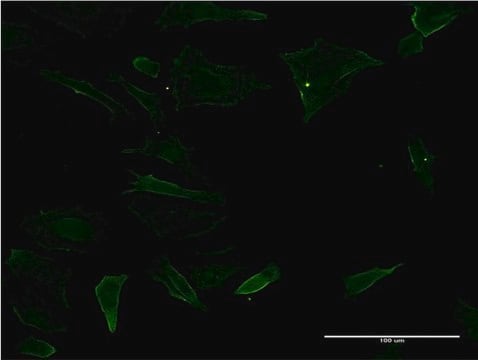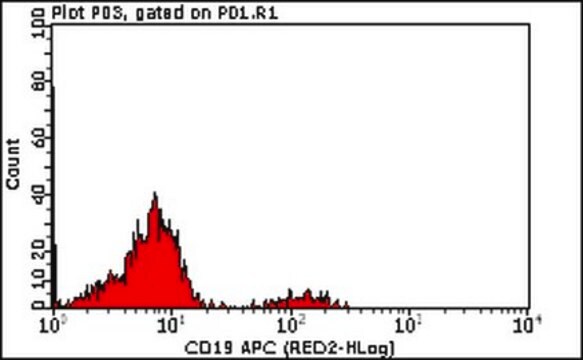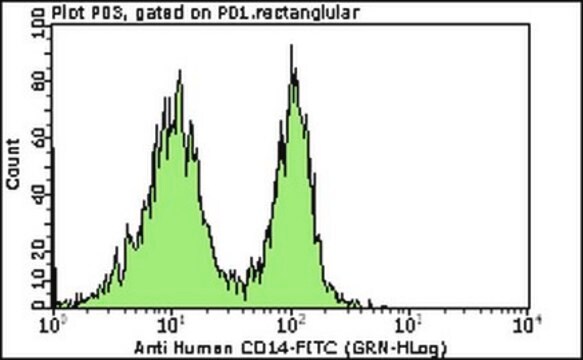MAB1794
Anti-Human B cells (CD19) Antibody, clone FMC63
clone FMC63, Chemicon®, from mouse
Synonim(y):
B-lymphocyte Surface Antigen B4
About This Item
Polecane produkty
pochodzenie biologiczne
mouse
Poziom jakości
forma przeciwciała
purified antibody
rodzaj przeciwciała
primary antibodies
klon
FMC63, monoclonal
reaktywność gatunkowa
human
producent / nazwa handlowa
Chemicon®
metody
flow cytometry: suitable
immunofluorescence: suitable
izotyp
IgG2a
numer dostępu NCBI
numer dostępu UniProt
Warunki transportu
wet ice
docelowa modyfikacja potranslacyjna
unmodified
informacje o genach
human ... CD19(930)
Powiązane kategorie
Opis ogólny
p I = 7.0
Specyficzność
Cell reactivity:
Normal:Stains all B lymphocytes in peripheral blood and spleen. Negative on granulocytes, monocytes, platelets, erythrocytes and T lymphocytes.
Clinical:
B cell chronic lymphocytic leukemia (B-CLL) +
Pro lymphocytic leukemia (PLL) +
Hairy cell leukemia (HCL) +
Common acute lymphoblastic leukemia (CALL) +
Pre-B acute lymphoblastic leukemia (pre-B-ALL) +
NULL-acute lymphoblastic leukemia (NULL-ALL) +
T common lymphocytic leukemia (T-CLL) -
Immunogen
Zastosowanie
Inflammation & Immunology
Immunoglobulins & Immunology
SUGGESTED USAGE DILUTION
Flow cytometry and Indirect Immunofluorescence 1:25
Dilute with isotonic buffer. Use 50 μl of diluted antibody per 1 x 10E6 peripheral blood mononuclear cells (PBMC) in 100 μl buffer.
Powiązanie
Postać fizyczna
Przechowywanie i stabilność
WARNING: The monoclonal reagent solution contains 0.1% sodium azide as a preservative. Due to potential hazards arising from the build up of this material in pipes, spent reagent should be disposed of with liberal volumes of water.
Inne uwagi
Informacje prawne
Oświadczenie o zrzeczeniu się odpowiedzialności
Not finding the right product?
Try our Narzędzie selektora produktów.
Kod klasy składowania
12 - Non Combustible Liquids
Klasa zagrożenia wodnego (WGK)
WGK 2
Temperatura zapłonu (°F)
Not applicable
Temperatura zapłonu (°C)
Not applicable
Certyfikaty analizy (CoA)
Poszukaj Certyfikaty analizy (CoA), wpisując numer partii/serii produktów. Numery serii i partii można znaleźć na etykiecie produktu po słowach „seria” lub „partia”.
Masz już ten produkt?
Dokumenty związane z niedawno zakupionymi produktami zostały zamieszczone w Bibliotece dokumentów.
Nasz zespół naukowców ma doświadczenie we wszystkich obszarach badań, w tym w naukach przyrodniczych, materiałoznawstwie, syntezie chemicznej, chromatografii, analityce i wielu innych dziedzinach.
Skontaktuj się z zespołem ds. pomocy technicznej